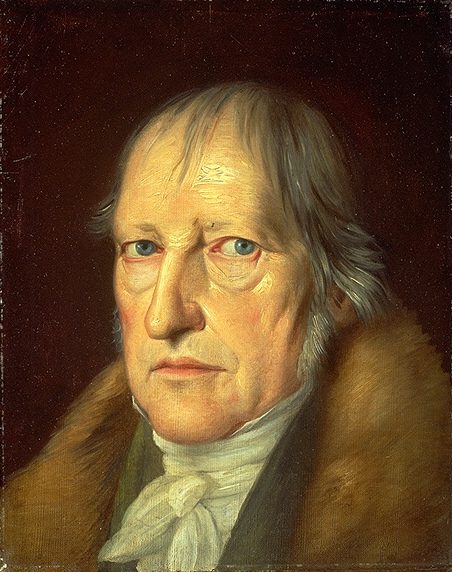There are two poles of contemporary thought–evident in academic philosophy departments, ordinary people’s differences of opinion, and the ministry of the church–though both are alien to the Christian worldview.
One pole insists that truth can only be established by the canons of scientific rationalism. The other pole insists that truth–or, rather “truth-claims”–are historically conditioned.
My fellow Patheos blogger Anthony Costello of Theological Apologetics has written a quite brilliant account of these two poles and why we need to be aware of them in his post “Whiteness” and The Splitting of the Evangelical Mind.
“Scientism” is the perspective of “analytic philosophy,” which dominates the field in English and American philosophy departments. It seeks to analyze philosophical questions with logical, even mathematical, rigor. Some versions claim that the big questions that philosophy has always struggled with–fate vs. free will, the meaning of life, the existence of God–are really “meaningless,” just confusions of language or attempts to formulate ideas that have no scientific basis. Its basic assumption is scientific materialism, that the material realm is all that exists and that it can only be understood by the scientific method.
“Historicism” is the perspective of “continental philosophy,” which dominates the field in Germany, France, and other countries on the European continent. It derives from Hegel, who saw all of reality and all of truth in terms of historic processes, as ideas emerge, are contradicted by contrary ideas, and work towards a synthesis in a never-ending dialectic. This view has developed in different directions. Existentialists focus on the history of the individual. Marxists focus on the large historical forces of economics and class struggle. Historicism too is materialistic, but it is a different materialism from that of scientism: a dialectical or “immanent materialism.”
These two schools of philosophy manifest themselves in different ways. Analytic philosophy is oriented to the natural sciences. Continental philosophy is oriented to the social sciences.
I would add that analytic philosophy is the hallmark of modernism. Continental philosophy is the hallmark of postmodernism.
Both of these poles co-exist today, though they are largely incompatible with each other. Analytic philosophers typically do not take their continental colleagues seriously, due to their relativism and subjectivity. And continental philosophers dismiss their analytic colleagues for their reductionism and political naïveté.
Costello notes that today the historicists are expanding their scope beyond the philosophy departments to influence the rest of the humanities and to generate fields of their own, such as race and gender studies. This is the source of “critical theory,” which purports to examine every truth-claim in terms of which social group exercises power and oppresses other social groups, with its variation “critical race theory.” This way of thinking is now impacting elementary schools, business corporations, and public policies. And it is even starting to challenge the hard sciences.
Costello points out that these ways of thinking have influenced the church. In the modernist era, Christian apologists focused on answering the challenges of the scientific materialists. Theologians tried to formulate systematic theology in terms of analytic logic. And, I would add, Bible scholars sought to apply “scientific principles” to the study of scripture, giving us the historical critical method of Biblical analysis, which, in effect, eviscerates Biblical authority.
Now the postmodernists, drawing on the other perspective, ridicule the alleged certainties of that “scientific” speculation about Scripture–which, somehow, has spawned so many different conclusions–but it reduces doctrine to its alleged historic causes or to personal experiences. Worse, it criticizes historic doctrines by claiming them to be sexist, racist, homophobic, or some expression of oppressive power.
You really need to read the whole post. Here is a sample:
On the analytic mode, one will tend to see Christianity as a series of historic claims that should be defended using reason and rigorous logical argumentation. Some claims may need to be jettisoned, like a young Earth, if they cannot be rigorously defended given this particular mode of thinking. However, the propositions of the Bible and the claims of the early church will, for the most part, be understood as necessary components of the Christian faith, objective claims that can be tested in the light of reason and a sufficient evidentiary database.
On the existentialist mode, however, historic Christian claims need not be defended. In fact many of them should not be defended. Instead, given the overarching idea of “historicism,” and the primacy of personal or group experience, historic Christian claims probably need to be deconstructed. They must be critiqued and adapted to fit the current manifestation of culture. For Christianity to make sense today, it must be reconstructed to fit the existential needs contemporary with current society. Where and how we update Christianity doesn’t depend on reason though, or on the universal and binding claims of certain propositions. It relies on lived experience. As such, argumentation using logic and evidence is not the right method for re-evangelizing the West. Instead it is the telling of stories that matters, and that regardless of how factually accurate the stories may be. Usually a semblance of facticity will do the job.
Illustration: G. F. W. Hegel by Jakob Schlesinger (1792-1855) – Unknown source, Public Domain, https://commons.wikimedia.org/w/index.php?curid=615903














